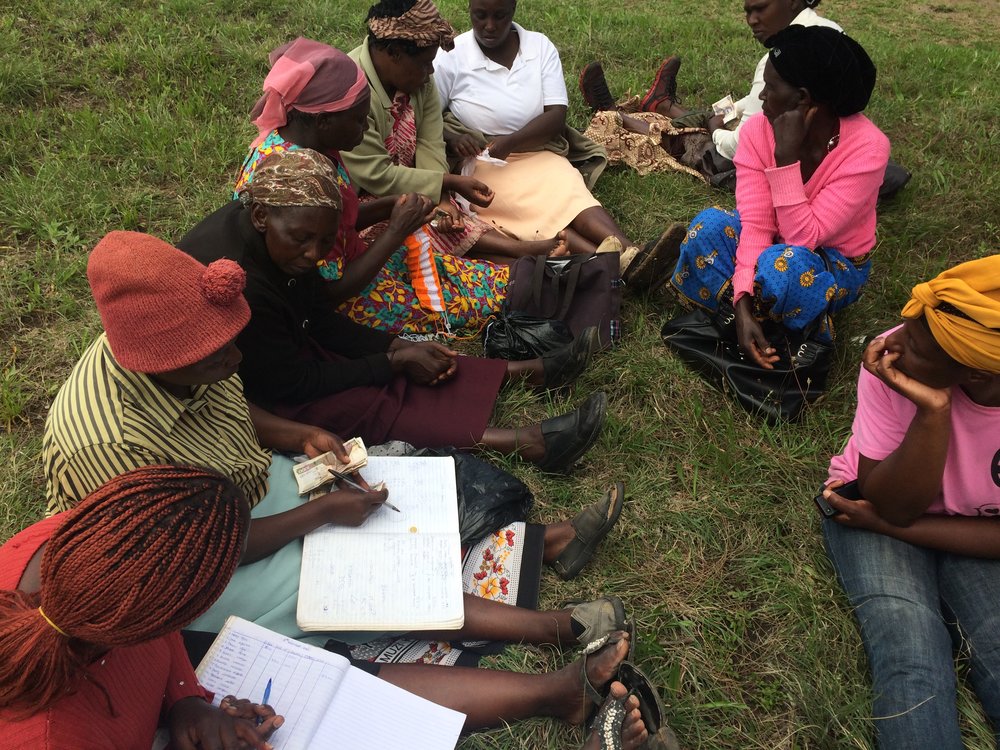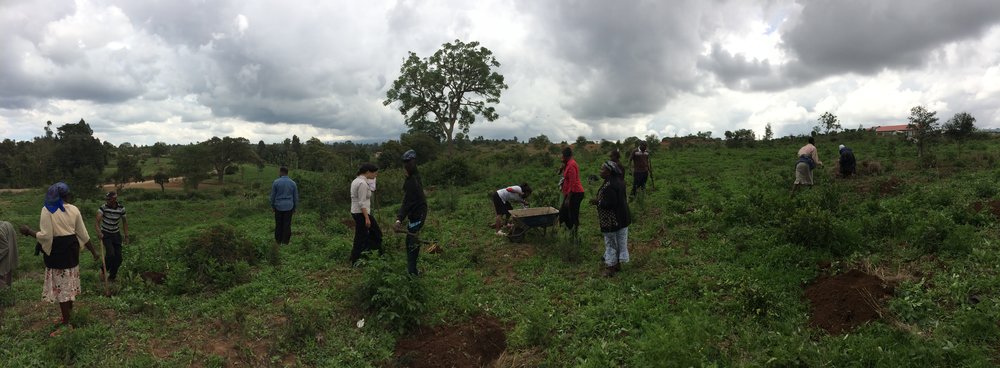
In 2009, the Stockholm Resilience Centre published the oft-cited paper “A safe operating space for humanity”, which attempted to measure nine planetary boundaries, which, if crossed, would result in unknown and perhaps catastrophic effects for the planet. Of these nine thresholds, in 2009 it was estimated that three of these had already been passed: Climate change, rate of biodiversity loss, and the nitrogen cycle. In 2015, these researchers revisited the original measures, and this time they placed more emphasis on climate change. Crossing the climate change boundary permanently, they warned, would have lasting, transformational effects on our fragile home called Earth.
Of course we know this. If you are like me, you watched The Inconvenient Truth in your dimly-lit science classroom. You connect climate change with a graph with a sharp upward line around the industrial revolution, or with an image of a polar bear on a single ice float. You vaguely understand the science behind it, and you imagine an apocalyptic future where Florida is underwater and the arctic is a tropical paradise. But that is the future, far away, not affecting your daily life. In the winter, when the thermometer shows sub-zero temperatures, you joke that global warming is a myth.
Before we left the Nairobi headquarters of Crown the Child Africa, fellow intern Patricia and I were conversing with the staff there about our destination and the place we would work for the next few months: Nanyuki.
“You will see climate change there,” someone remarked, and the others agreed. I was not sure what they meant by this until after I arrived in Nanyuki.
One woman, Jane, from the rural Mureru group for savings and lending, took aside the Local E-Roots Coordinator, Donald, after the monthly microfinance group meeting. She complained that her sweet potatoes were not growing well: it had been too dry. The rains came later than expected. Even at the resource farm near the base of Mount Kenya, the river on the property is lower than it has been in recent years. This is not surprising. In fact, in 2013 the Intergovernmental Panel on Climate Change (IPCC) predicted this exactly: “subtropical arid and semi-arid regions will likely experience less precipitation.” Nanyuki and the surrounding area is a semi-arid region. The same IPCC report claimed that low-income countries will be the ones who bear the brunt of the effects of climate change.
In North America, it is hard for us to understand the life-and-death effects of climate change. Our way of life contributes so much to the problem, but we are isolated from the effects. While there may be shocking weather events, like hurricanes or the drynesss that led to devastating forest fires in 2016, we are generally prepared for these events: we have hurricane-proof houses, and insurance to protect us if anything goes terribly wrong. Unfortunately, the effects of climate change have a much greater impact on the lives of people in poverty. If you are a subsistence farmer, a dry year could mean your family does not have enough to eat. It may mean you do not have enough money to send all your children to school. All these things are interconnected: if a family lacks nutritious food, the children do not have enough energy to do well in school. Without education, the family is likely to stay in poverty. They will continue to work at subsistence agriculture, which, especially with climate change, is unstable. It is a precarious existence.
I have seen climate change firsthand here. I have seen a field of cabbage gone to waste because the rains did not come as they do every year. The farmer worked hard to plant these cabbages with the expectation that the rains would come. But the rains did not come, and when they did it was not enough to salvage the crop. The hard work and investment went to waste, and the family may go hungry. The sad part is, we in North America bear some of the responsibility for this failed crop. Our excess comes at the expense of these people’s lives.

The last thing I want to do is make people feel guilty. I do not think it is the fault of the individual that we are so disconnected from the people who make our life possible. Rather, it is the driving philosophy of our culture– the idea that we are individuals– that fools us into thinking that we are indeed independent from the rest of the world. Individualism is basically the cornerstone of our North American paradigm. Our economic system is based on the idea that individual players acting in their own self-interest will lead to a favourable outcome for everybody. Adam Smith, the father of modern economics, said “Individual ambition serves the common good.” This thinking is ingrained in our mindset. I really think that individualism has made many good things possible, like democracy and feminism. But it is also flawed. Because of course we are not really individuals. We all depend on others and have others depending on us. And we all depend on the earth to sustain us. We need to be aware that our economic choices do have effects on more people that ourselves, and that these effects are not always favourable.
So you see, there are farmers in Kenya who are depending on us. They are depending on us to stop emitting so much CO2, because in fact that is a factor causing climate change, and climate change is causing challenges for them. I love being in Kenya and working with an organization, Crown the Child Africa, that is actively fighting poverty. I love seeing how programs like child sponsorship, microfinance, and E-Roots are helping people have more stable incomes, food security, and hope. But at the same time, I am ever-aware that in fact, I am part of the problem. I am contributing to this machine that actually keeps people in poverty. According to the World Bank, Canada’s emissions of carbon dioxide in 2013 were 13.5 metric tons per person. In Kenya in the same year, emissions per capita were 0.3 tons per person. Our way of life, the way of life that is based on the false idea that we are individuals and our habits will not affect others, is in fact harming others.

The good news is that extreme poverty rates have more than halved since 1990. The bad news is that this could all be reversed if we do not stop the climate change that is threatening many of the poorest people in the world.
I know you probably came here to read about my experiences in Kenya. But I think the only way to make sense of these experiences is to look at them within a bigger theoretical context. I do not want to be just one more voice warning Westerners of a dystopic future, if we do not urgently change. There have been many of these voices, and change had been negligible. I believe change will only come through us collectively adopting a new paradigm, a new ideology that does not bow down at the altar of money and greed but rather returns to values that human societies have held for millennia: interdependence and the sacredness of life.
Hannah Main is working as a Business Development Coordinator with Crown the Child Africa in Kenya.
